
8 New Nonfiction Books to Read in May
It finally feels like spring, and if there’s one thing that I love about springtime, it’s sitting outside in the sunshine with a new book and iced coffee. (And some allergy meds; IYKYK). There are so many great books out this month, especially in nonfiction, to look forward to.
In these eight May nonfiction releases, there are so many topics from which to choose. There’s history, memoir, essay collections, and science/nature writing, just to name a few. Many of these are hybrids in that, even if a book is a memoir, it may also deal with larger issues, like the higher educational system and the education gap, or systemic racism and inequities in medicine, to give a couple examples. Memoir is braided with research and reportage to create a broad yet personal look at a topic. There’s also a new collection of the hilarious essays that Samantha Irby is known for, and a collection of previously published pieces (with updates) by notable science and nature writer David Quammen.
There’s something for everyone in these new releases, whether you want to lose yourself outside, dive into history, or learn about others’ lives.
Let’s dive in to some new nonfiction you’ll want to add to your TBR pile ASAP!
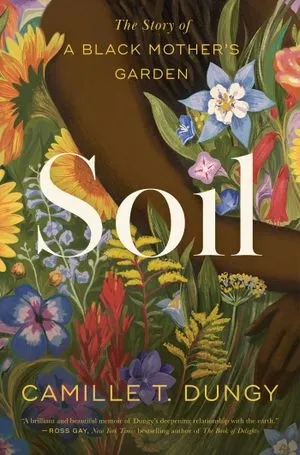
Soil: The Story of A Black Mother’s Garden by Camille T. Dungy
If you’ve read Dungy’s work, you know how beautiful her prose is, and this book is no exception. When she moved to the Colorado town of Fort Collins in 2013, there were guidelines to what residents (who were mostly white) could and could not plant in their gardens. What follows is Dungy’s resistance to the homogeneity that was enforced, writing about the plants, herbs, vegetables, and flowers she plants, and why diversity is needed for the environment — which is also a larger metaphor for our communities and the planet. Without diversity and intersectionality, our future is threatened, in all possible ways. But the book is also a meditation on her relationship with the land, and what this means. A hybrid of memoir, nature writing, and environmental justice, this book is a must-read for the spring.

Journal of a Black Queer Nurse by Britney Daniels (May 9th)
Daniels is a travel nurse, and in this book she writes about her path to nursing, as well as her experiences traveling to various hospitals to work as an emergency room nurse pre-pandemic and during the pandemic, although the pandemic is not a main focus. Instead, she writes honestly about the systemic racism in the medical system that is directed towards both professionals and patients, and how inequalities surface in care, and are baked into our medical system. She writes about the toll it can take on a person, especially if they are Black and visibly queer, but she also writes about the encounters with patients that fill her soul, compassionately rendering her patients and never forgetting their humanity.
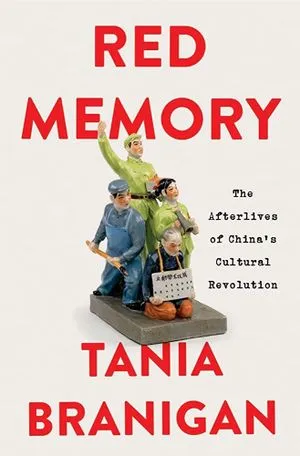
Red Memory: The Afterlives of China’s Cultural Revolution by Tania Branigan (May 9th)
According to Branigan, you cannot understand China if you don’t understand its Cultural Revolution, or the period between 1966 and 1976, when Mao Zedong sought to keep Chinese communism in place and get rid of all capitalist and traditional cultural parts of Chinese society. It tore families and friends apart and millions of people died — yet it’s still largely not talked about. Branigan explores this period and its effects in this book, looking at the reverberations of this time period and how the traumas and secrets from then linger, even today. It’s a fascinating and deep journalistic dive into history, which never forgets the very real impact on people.

Uneducated: A Memoir of Flunking Out, Falling Apart, and Finding my Worth by Christopher Zara (May 16th)
In a world that can be preoccupied with achievement — like the kind that is measured by way of degrees and credentials — this book is a thought-provoking memoir. Zara wanted to write about the education gap and the experience of being without a degree, but realized that his own story needed to play a larger part. He writes about dropping out of school and dealing with the work world without a degree, while also examining what it means to be “educated.” This is a much-needed look at the higher-education system, what it means to have a degree (and not), who decides the importance of credentials, and why, all illustrated through Zara’s story.
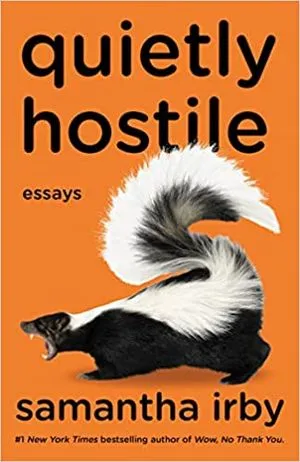
Quietly Hostile: Essays by Samantha Irby (May 16th)
Irby’s essays are always a joy to read: her honest writing lays bare what her life is like, alternatingly hilarious, cringey, heart-wrenching, and joyful. In this collection of essays, she takes us on a ride through her life, from emails, to being turned away at restaurants, to bathroom and tummy trouble mishaps, and much more. She reminds us that life is messy and raw, and that what you see on social media isn’t the whole story. If you’ve read her previous essay collections, you’re not going to want to miss this one.
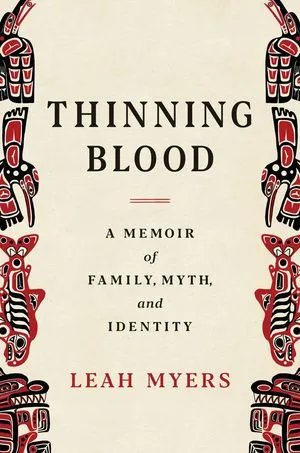
Thinning Blood: A Memoir of Family, Myth, and Identity by Leah Myers (May 16th)
In this beautifully-rendered memoir, Myers takes the image of a totem pole and builds her family’s story, writing about how she may be the last in her family line to be a member of the Jamestown S’Klallam Tribe, because of the blood quantum laws. She braids together stories from her own life and her family’s life with Native mythology, and the racism she’s experienced in her own life alongside the history of Native genocide. This is a quietly powerful book, and I can’t wait to see what Myers writes next.

The Heartbeat of the Wild: Dispatches From Landscapes of Wonder, Peril, & Hope by David Quammen (May 16th)
Quammen is a notable science and nature writer, and he’s one of those writers who I will read anything by, even his grocery lists. This book is no exception — and is much more interesting than his weekly groceries. In this collection, there are 20 updated pieces that he’s written over the span of his career with National Geographic, from places around the world, exploring the wild and its animals, and relationships between humans and animals. Adventure, conservation, research, and relationship all come together in these stories, in places like Kamchatka, Russia, Republic of the Congo, the Ivory Coast, Chile and Argentina, and much more. He adds notes to each piece, providing updated context and additional information, and it’s interesting to see what the updates are and how things have changed (or not).
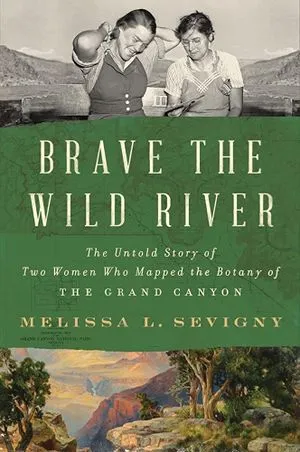
Brave the Wild River: The Untold Story of Two Women Who Mapped the Botany of the Grand Canyon by Melissa L. Sevigny (May 23rd)
Most of us don’t think about the botany of the Grand Canyon, or about how it was discovered or catalogued. But in the summer of 1938, Elzada Clover and Lois Jotter, both botanists, went with a team of scientists on a boating trip down the Colorado — the most dangerous river in the world — to map the botany in the Canyon. Sevigny writes about the 43-day trip, the attitudes of the public and their fellow travelers toward the two women, and the discoveries they made. It’s an immersive, informative read, and I’m glad their story is finally being told.
What are you going to read first?
If you’re looking for even more nonfiction, check out this post on 10 of the best essay collections, and this post on microhistories. And as always, there’s our curated New Release Index, where you can find even more new releases organized by release date and genre.







